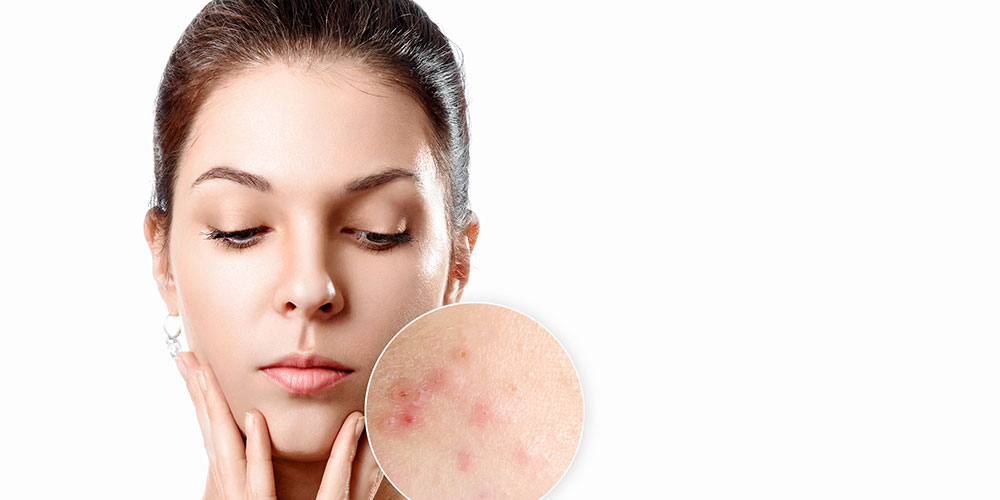Dubai, known for its world-class medical facilities and advanced dermatological treatments, is a leading destination for those seeking effective solutions for acne. Navigating the myriad options available can be overwhelming, but with the right guidance, you can find a treatment plan that aligns with your skin type and needs. This ultimate guide provides a comprehensive overview of Acne Treatment In Dubai, covering key strategies, top treatment centers, and essential tips for achieving clear skin.
Understanding Acne and Its Causes
Acne is a common skin condition that affects many people, characterized by pimples, blackheads, and cysts. It occurs when hair follicles become clogged with oil and dead skin cells, leading to inflammation and bacterial growth. The severity of acne can range from mild breakouts to severe cystic acne, and its causes include hormonal changes, genetic predisposition, and lifestyle factors.
Key Treatment Options
1. Topical Treatments
Topical Retinoids: Derived from Vitamin A, these treatments help unclog pores and reduce inflammation. They are often used for both acne and acne scars, promoting cell turnover and preventing future breakouts.
Benzoyl Peroxide: Known for its antibacterial properties, benzoyl peroxide targets the bacteria responsible for acne. It is available in various strengths and formulations, including gels, creams, and washes.
Salicylic Acid: This beta-hydroxy acid exfoliates the skin and helps to unclog pores. It is commonly used in cleansers, masks, and spot treatments to reduce acne and prevent new breakouts.
2. Oral Medications
Antibiotics: Oral antibiotics can reduce the bacterial load and inflammation associated with acne. They are typically prescribed for moderate to severe cases and used in conjunction with topical treatments.
Hormonal Treatments: For acne linked to hormonal imbalances, oral contraceptives or anti-androgens can help regulate hormones and reduce acne flare-ups.
Isotretinoin: Reserved for severe acne that has not responded to other treatments, isotretinoin works by reducing oil production and shrinking oil glands. It is highly effective but requires careful monitoring due to potential side effects.
3. Laser and Light Therapies
Fractional Laser Resurfacing: This treatment targets deeper layers of the skin to stimulate collagen production, improving the appearance of acne scars. It involves minimal downtime and can be adjusted based on the severity of scars.
Pulsed Dye Laser: Effective for reducing redness and pigmentation associated with acne scars, this laser targets blood vessels in the skin to improve overall skin tone.
Blue Light Therapy: This non-invasive treatment uses blue light to target acne-causing bacteria, reducing inflammation and preventing future breakouts.
4. Chemical Peels
Salicylic Acid Peels: These peels exfoliate the skin, unclog pores, and reduce inflammation. They are suitable for treating mild to moderate acne and improving skin texture.
Glycolic Acid Peels: Made from fruit acids, these peels help to brighten the skin and improve the appearance of superficial acne scars by removing dead skin cells and promoting cell turnover.
TCA Peels: Trichloroacetic acid peels are used for deeper exfoliation, making them effective for treating severe acne scars and improving skin texture.
5. Microneedling
Microneedling involves using a device equipped with fine needles to create micro-injuries in the skin. This stimulates collagen and elastin production, helping to improve the appearance of acne scars and overall skin texture.
6. Platelet-Rich Plasma (PRP) Therapy
PRP therapy involves drawing a small amount of your blood, processing it to concentrate the platelets, and injecting it into the skin. The growth factors in PRP promote healing and reduce the visibility of acne scars, offering a natural treatment option.
Tips for Achieving Acne Treatment Success
1. Consult a Dermatologist: A thorough consultation with a qualified dermatologist is essential for determining the most appropriate treatment plan for your specific condition. They can assess your skin type, acne severity, and overall health to tailor treatments effectively.
2. Follow a Consistent Skincare Routine: Adhering to a daily skincare regimen that includes cleansing, exfoliating, and moisturizing is crucial for managing acne. Use non-comedogenic products that won’t clog pores.
3. Stay Hydrated and Maintain a Healthy Diet: Proper hydration and a balanced diet can support overall skin health and enhance the effectiveness of acne treatments. Avoiding excessive sugar and processed foods can also help reduce acne flare-ups.
4. Protect Your Skin from Sun Exposure: Sun protection is vital, especially when undergoing acne treatments that can make the skin more sensitive. Use a broad-spectrum sunscreen with SPF 30 or higher to prevent further pigmentation and damage.
5. Be Patient and Persistent: Acne treatments can take time to show results. It’s important to remain patient and follow the prescribed treatment plan consistently. Regular follow-up appointments with your dermatologist will help track progress and make any necessary adjustments.
Conclusion
Dubai offers a wealth of advanced options for acne treatment, from cutting-edge technologies to personalized care plans. By understanding the various treatment options and choosing a top-tier facility, you can achieve effective results and enjoy clearer, healthier skin. With the right approach and guidance, acne treatment success is within reach in this dynamic and innovative city.





Comments